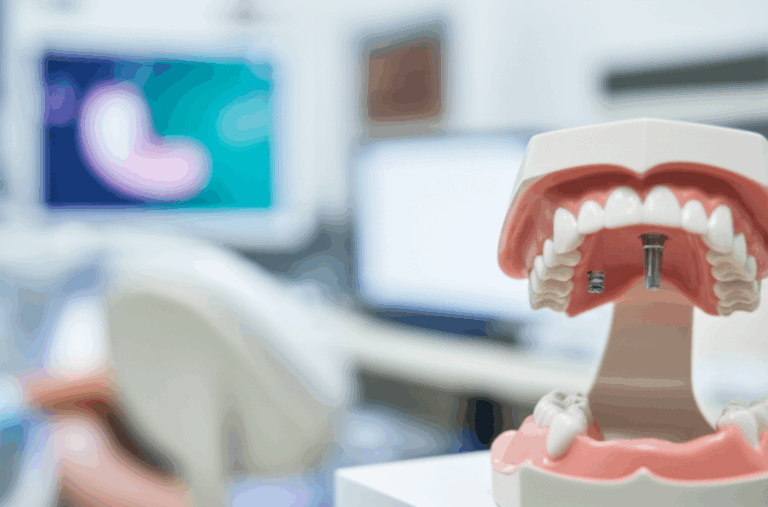
Can a Dental Hygienist Open an Independent Clinic? Navigating State Laws & Business Opportunities
That question—“Can a dental hygienist open a clinic?”—pops up more and more these days. Maybe you’re a dental hygienist feeling ready for a new adventure. Or you’ve just seen a sign for a hygienist-led dental office and wondered, “Wait, I thought you always needed a dentist in charge?” You’re not alone in asking. This is a common point of confusion, partly because the rules keep changing and, honestly, those rules can get tangled up real quick.
Take a deep breath. You’re in the right place for easy answers—without fancy words or a secret agenda. In this guide, I’ll walk you through what’s really possible, what’s not allowed (for now), and what it actually takes to open a dental hygiene clinic in the United States. Whether you’re seriously planning your next career step or just curious, I’ll give you clear, honest info so you can make smart, confident choices about your future in dental care.
In This Article
- The Shifting Landscape: Understanding Independent Dental Hygiene Practice
- State-Specific Regulations: The Ultimate Deciding Factor
- Models of Independent Dental Hygiene Practice
- The Path to Opening a Dental Hygienist-Led Clinic (Where Permitted)
- Services Offered in Independent Dental Hygiene Clinics
- Benefits and Challenges of Independent Dental Hygiene Ownership
- The Future Outlook for Independent Dental Hygiene
- Conclusion: Is Independent Dental Hygiene Practice Your Next Step?
The Shifting Landscape: Understanding Independent Dental Hygiene Practice
Let’s start with the basics: For years, most people thought dental hygienists just worked for dentists—skilled and smart, but always under a dentist’s license. Hygienists did cleanings, exams, and taught patients about oral health, but owning a clinic? That seemed impossible.
Now things are changing. More states are seeing the value hygienists bring—not just as helpers, but as leaders in keeping people’s mouths healthy. This brings two main changes:
- Direct Access: Some states let dental hygienists do some important dental care without a dentist’s okay or being there.
- Independent Practice: In a few states, hygienists can own and run their own clinics—they’re the boss.
These changes open new doors for hygienists—hello business ownership and flexible schedules! Plus, it helps more people (especially in rural or low-income places) get easier, cheaper dental care.
But—there’s always a “but”—state laws call the shots. What works in California might not work in Texas or Florida.
State-Specific Regulations: The Ultimate Deciding Factor
There’s no single “yes” or “no” to our main question. The answer changes a lot depending on where you live and work. Let’s break it down.
States Where Independent Practice Is Allowed (maybe with dentist’s help)
Some places are making it easier for hygienists to work for themselves:
What Is “Direct Access” and “Collaborative Practice”?
- Direct Access lets a hygienist treat patients without a dentist standing by. It usually covers services like cleanings, check-ups, sealants, and teaching about oral health.
- Collaborative Practice means a hygienist can see patients alone but has a working deal with a dentist—like making referrals or getting cases checked once in a while.
Where Can Hygienists Be Their Own Boss?
Here’s where it gets interesting. A small group of states let hygienists own and run clinics—no dentist required on staff, though working together for tougher problems is usually smart (sometimes the law says so). Some of these states are:
- Colorado
- Maine
- Washington
- Oregon
- California
- Arizona
- New Mexico
- Minnesota
Each has rules—for example, Colorado needs extra training and some experience, Maine wants two years of supervised work first, and California calls these providers RDHAPs (Registered Dental Hygienists in Alternative Practice).
Why Does This Matter?
When hygienists open clinics, studies show:
- More people (especially in places with few dentists) get care
- Preventive services such as cleanings and oral health lessons go up
- Groups like seniors, kids, and people in rural areas get real help
States Requiring Dentist Supervision
Most states still ask hygienists to work with or for a dentist:
- Direct Supervision: A dentist must be there and say “okay” to every job.
- Indirect Supervision: Dentist approves but doesn’t have to be in the building.
- General Supervision: Dentist gives the okay but doesn’t need to be around.
In these states, hygienists usually can’t legally own a clinic by themselves. If that’s your home, you might have to wait a while—or think about moving, or working to change the law.
How to Check Your State’s Dental Hygiene Rules
Since the laws change often, get the newest info here:
- State Dental Board Website: Check for “license” or “scope of practice” sections for hygienists.
- Official State Laws: Most states have their rules listed online.
- State Dental Hygienists’ Association: Good for tips and links.
- Talk to a Healthcare Lawyer: If you’re setting up a business, this is worth it.
Remember, “independent practice” means something special by law. Just because you can do some things without a dentist doesn’t always mean you can own a clinic.
Models of Independent Dental Hygiene Practice
Let’s say your state lets hygienists work on their own. What does running a hygienist-owned clinic actually look like? There are a few ways you can go:
Regular Clinics (Brick-and-Mortar)
Think of a classic dentist’s office—waiting room, chairs, check-in desk—but a dental hygienist is the owner. You’d offer cleanings, oral health advice, deep cleaning for gum disease, sealants, and more.
Pros:
- You decide everything.
- Patients know where to find you every time.
Cons:
- High costs to start and keep it going.
- You’re stuck in one spot.
Mobile and Portable Clinics
You bring your tools to the patients—using a van, or portable gear in schools, nursing homes, or community centers.
Pros:
- You can go help people who can’t get to a normal office.
- No rent or building costs.
Cons:
- Need easy-to-carry, tough equipment.
- Getting power and water can be tough.
- Special state rules may apply.
Working Inside Other Healthcare Places
Set up shop in another health office—a dentist’s, community health center, school clinic, or doctor’s office. You’re on your own, but use their space and maybe share resources.
Pros:
- Lower costs since you share space.
- Easy to send patients to other providers.
Cons:
- Not as much freedom as your own building.
- You’ll need a good deal with the place you’re sharing.
The Path to Opening a Dental Hygienist-Led Clinic (Where Permitted)
If your state says yes, what’s next? Being boss means you stop doing just teeth cleaning and start handling business work—a big but exciting change.
Making Your Business Plan
A solid business plan isn’t just for the bank. It’s your guide. Here’s what to include:
- Why You Want to Open: What’s your main goal?
- What You’ll Offer: Cleanings, sealants, teledentistry maybe.
- Who Needs You: Seniors? Kids? Families?
- How People Find You: Social media? Flyers? Community groups?
- Money Plans: What will it cost to start and run? When do you make a profit?
Also check out the competition—are you the only one nearby who focuses on seniors, kids, or basic cleanings?
Following the Law
Don’t let paperwork ruin your dream. Here’s what to look out for:
- Register Your Business: Pick if you’ll be an LLC, corporation, or just you. Each changes your taxes and risk.
- Get Licenses and Permits:
- Federal: Get an EIN (Employer ID Number).
- State: Your professional license and maybe more business papers.
- Local: Zoning okay and local business license might be needed.
- HIPAA/OSHA Rules: Protect patient info and keep the place safe.
Missing a step here can bring big trouble later.
Paying for Your Clinic
Dream big, but keep it real:
- Startup Costs: Most say $50,000–$150,000. Mobile clinics run cheaper. Main costs: dental chairs, records software, building changes, and getting the word out.
- How to Pay:
- Loans: From banks, credit unions, or the Small Business Administration (SBA).
- Grants: Sometimes available, especially if you help people in need.
- Your Own Money: Fastest but riskier.
- Investors: Not common, but possible if you find someone who believes in your idea.
Remember ongoing costs—supplies, insurance, paying workers, maintenance, and tech updates.
Setting Up and Running Your Clinic
Now, bring your idea to life:
- Pick a Location and Sign a Lease: Make sure it’s easy to get to and allowed by city rules.
- Buy Equipment: Dental chair, cleaning gear, sterilizer, and maybe X-ray machines if state law says you can use them.
- Software: Use dental management software and electronic records. Many new clinics are paperless now.
- Set Your Workflow: Decide on how to book patients, handle records, and keep everything clean.
Getting and Keeping Patients
You need people to know you exist:
- Build a Brand: Have a catchy name, logo, and look.
- Be Online: Make a clear website and use social media (Facebook, Instagram, maybe TikTok).
- Community Events: Host free dental lessons, work with schools or other groups, build a referral list from other providers.
- Teach Patients: Explain how good oral care can save them trouble and money.
Insurance and Protection
You’ll need a few types of insurance:
- Malpractice Insurance: If something goes wrong with a patient.
- General Liability: For accidents, like someone slipping and falling.
- Property Insurance: Protects your stuff and equipment.
- Business Interruption: If a flood or problem makes you close for a while.
- Cybersecurity: If you keep patient records on a computer.
Services Offered in Independent Dental Hygiene Clinics
What can an independent dental hygienist do? State law sets the limits, but usually, these clinics focus on:
- Oral Health Checks: Looking for needs, risks, or early dental problems.
- Teeth Cleaning (Prophylaxis): Removing plaque, tartar, and stains.
- Fluoride and Sealants: Great for kids and adults who get a lot of cavities.
- Teaching Patients: Helping people learn how to keep their mouths healthy at home.
- Diet Advice for Healthy Teeth: What you eat matters for your mouth.
- Deep Cleanings (Periodontal Therapy): Cleaning below the gums to manage gum disease—not surgery, but stops things from getting worse.
- Applying Germ-Killing Agents: Helps stop or manage gum problems.
- Making Referrals: If someone needs a filling, crown, surgery, etc., you refer them to a dentist.
Remember: Even in the most open states, hygienists can’t do fillings, crowns, or dental surgery (like root canals). Good connections with local dentists are still important.
To see how basic care fits with bigger treatments—like when a patient needs a crown and bridge after a cleaning—a solid connection with a dentist or a digital dental lab can really help.
Benefits and Challenges of Independent Dental Hygiene Ownership
Let’s talk honestly about what’s good and what’s hard.
Main Benefits
- Better Access to Care: Hygienist-owned clinics often help people where dentists aren’t around—like in rural areas or for folks who have trouble paying.
- More Control Over Your Work: You set the clinic rules, schedule, and type of care. No more rushed, “one-size-fits-all” visits.
- Focus on Prevention: Hygienist clinics mainly help keep people healthy, not just fix problems. You teach people to avoid dental problems, not just treat them.
- Innovative and Flexible: Run a mobile clinic, try teledentistry, team up with schools—you can do what fits your community or your strengths.
- Rewarding Ownership: Running your own clinic can be tough, but very satisfying if you like a challenge.
Main Challenges
- Tricky Rules: State laws change, and keeping up is a real job.
- High Starting Cost: Even a small clinic isn’t cheap. Getting loans or grants can be hard if you’re new.
- Business Skills Needed: Now you handle money, staff, ads, and more—not just teeth!
- Limited Clinical Work: You can’t do fillings or heavy dental work. Good dentist partnerships are a must.
- Insurance Payment Troubles: Not every insurance plan pays for hygienist-only care, and programs like Medicaid/Medicare have different rules by state.
- Need Good Referral Systems: Without good dentist partners nearby, your patients can run into trouble if they need something you can’t offer.
The Future Outlook for Independent Dental Hygiene
The trend is moving toward more freedom and chances for dental hygienists:
- Advocacy Counts: The American Dental Hygienists’ Association (ADHA) and state groups keep working hard to give hygienists more freedom, let them work on their own, and find new ways to serve people.
- Public Health Is Seeing Value: Research proves hygienists give high-quality, affordable care—helping fix shortages in dental workers and reaching people who aren’t getting care.
- Working with Other Healthcare: As mouth health gets linked to body health, expect hygienists to play a bigger role in healthcare teams, schools, and with doctors.
If running your own clinic sounds exciting, here’s some good news: in states that started early (like Colorado or Maine), hygienists haven’t just filled gaps—they’ve tried new things, built great patient relationships, and helped move the job forward.
Conclusion: Is Independent Dental Hygiene Practice Your Next Step?
Let’s sum it up:
Key Points
- Yes, dental hygienists can open their own clinics in a handful of states. But in most places, rules still say you need a dentist’s supervision.
- State law matters most. Check your state’s rules, talk to your board, and ask a legal expert before launching out.
- You’ll need business skills. Planning, paperwork, money, insurance, and getting patients are all key.
- Strong connections help. Build good ties with dentists, labs, and other health workers to support your clients.
- Prevention is powerful. Clinics led by hygienists can really change their communities by focusing more on education and stopping problems before they start.
What to Do Now
- Learn your state’s rules: Go to your state dental board’s website or ask your hygienists’ group for updates.
- Talk to others: Find hygienists or dentists who started their own practice—they have great advice.
- Start your plan: Write down your goals, check your market, and start counting the costs.
- Build your network: Go to events, talk to local health groups, and ask for help—don’t go it alone.
- Keep learning: Business, marketing, and compliance classes are all useful. The more you know, the farther you’ll go.
If you want to make your own way—to help people your way, to try new things, to grow—independent practice can be incredibly rewarding. It won’t always be simple, but the chance to make a difference is real.
And if you’re curious about the tools and support that dental pros use, check out resources like digital dental labs for modern workflow ideas or see how dental ceramics labs help with high-quality work your dentist partners need.
Remember: every big change starts with a question. Yours, right now, is the perfect way to begin.
Frequently Asked Questions (FAQs)
Is it legal for a dental hygienist to open a clinic in my state?
It depends! Only a few states (like Colorado, California, Maine, Oregon, Arizona, New Mexico, Minnesota, Washington) allow this. Most need hygienists to work under a dentist.
What services can an independent dental hygienist legally provide?
Mostly basic care: cleanings, check-ups, oral health lessons, sealants and fluoride, and some treatment for gum disease. Things like fillings or surgery stay off-limits.
How much does it cost to open a dental hygiene clinic?
Starting costs are $50,000–$150,000 (not counting buying a building), depending on your plan and location.
Are hygienist-led clinics successful?
In states that allow them, yes—especially in places that need low-cost, easy-to-reach dental care. The key is good business planning and strong local connections.
What are the biggest hurdles?
Hard rules, money issues, not being able to do every service, and needing good relationships with dentists and other specialists.
Data and Case Examples Table
| Category | Metric/Finding | Value/Observation | Source/Context |
|---|---|---|---|
| State Regulations | Number of states with “Direct Access” | ~42 (definitions vary) | ADHA 2023-2024 |
| State Regulations | Full independent practice states | 8–12 at most | State Boards, ADHA |
| Access to Care | Improved preventive dental care in underserved areas | Notable increases in utilization | Public health studies, Colorado/Maine models |
| Startup Costs | Typical range | $50,000–$150,000 | Industry benchmarks |
| Revenue Potential | Successful clinic annual revenue | $100,000–$300,000+ | Industry reports, case studies |
| Professional Satisfaction | Impact on hygienist satisfaction | Higher job satisfaction reported | Workforce surveys |
| Patient Experience | Acceptance of hygienist-only clinics | Generally positive, cited for accessibility | Community surveys |
Still Have Questions?
Being curious is step one—in your job or your health. If you’re thinking about starting your own clinic, start by learning, talk to others, and keep looking for new info. The future for dental hygienists is growing. Maybe you’ll be one of the new leaders helping shape what’s next.








